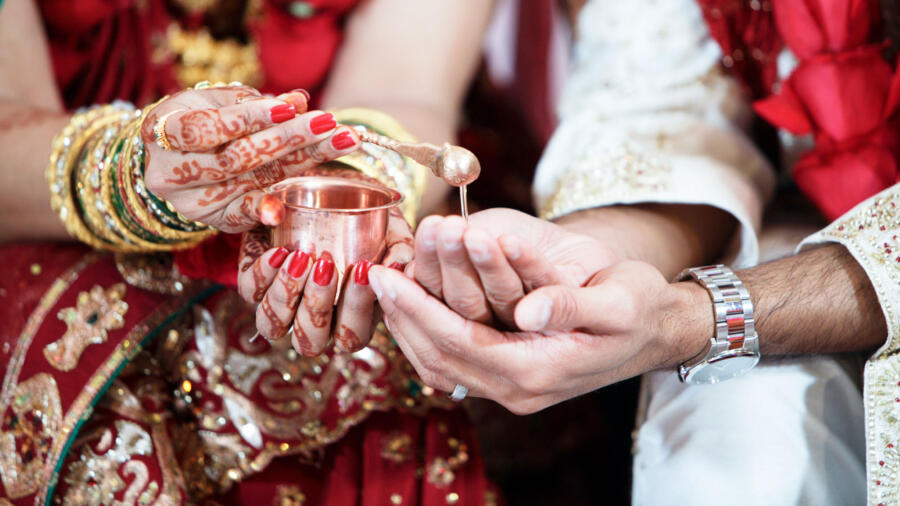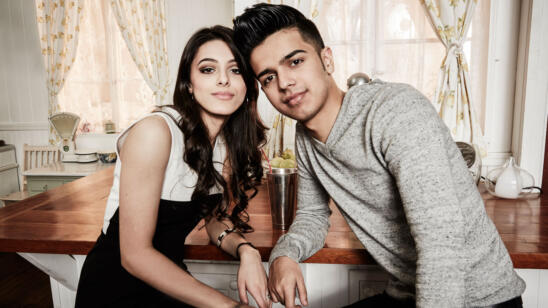Once upon a time, marriage was pure business. Not the culmination of a starry-eyed love affair or the cementing of a co-dependent relationship that it is today.
Marriage was just like dating. Dating for families, looking to hitch their fates with other families of similar interests, with families that made them look good amongst their friends.
Marriage was meant to tie together two ginormous families, the moms and dads and uncles and aunties and all their counterparts, into one lifelong bond at one festive affair. And yes, the boy and girl were still required to attend.
While our studio apartment-dwelling lives might be a far, far cry from this world of arranged marriages and joint families, some of these rituals — some cute and some downright silly — have endured elsewhere in the world. Let’s explore some (surprising) arranged marriage rituals that exist today.
1. Read Your Horoscope
If you read your daily horoscope, only to see how bae’s day will affect yours, then consider yourself part-Hindu. Matching the bride and groom’s horoscopes is standard procedure before a Hindu wedding. The kundli, or horoscope, is prepared at birth, almost like a birth certificate, by a pundit, or scholar, based on the time and location of birth. Before the parents say, “We do,” a pundit matches the kundlis of the bride and the groom. The more points matched, the better the marriage. And yes, there is a minimum threshold, below which marrying is a no-no.
2. Shanghai Marriage Market
Walking by People’s Park in Shanghai on a weekend afternoon, expect to be greeted by hundreds, if not thousands, of paper sheets pinned to open umbrellas lying on the ground. Look closer and you will find a potential partner’s age, height, weight, qualifications and location of birth scribbled or typed on each bit of paper.
The new kid on the arranged market block, Shanghai Marriage Market has only been around since the early 2000s. Created out of necessity due to declining marriage rates in China, worried parents walk around scouting the right profile for their daughters and sons. When they find something they like, they stop and chat with the parents of the profile. It’s like speed dating in a park for partner-seeking parents.
3. Marrying a Tree
Tree-huggers rejoice! Hindu customs allow you to finally marry that weeping willow you’ve been eyeing. An unlucky configuration involving the planet Mars in your horoscope makes you a manglik, basically a nice way of saying that you are unlucky in love, and marriage is f*cked. But pundits have fixed this planetary problem by creatively exploiting religious loopholes. A manglik bride or groom can symbolically “marry” a tree, or in some cases an animal or stone idol. Dumping all marital bad luck on this first marriage means you are free to pursue a happy human marriage, only if you want to that is.
4. Watta Satta
Not to be confused with a Shakira soccer anthem, Watta Satta is the arranged marriage version of retail BOGO offers. Watta Satta is a tradition practiced in some tribal Pakistani belts. Marrying one sibling means you get the other one pretty much for free. So, if a guy marries a girl, his sister can end up marrying the girl’s brother.
This might vaguely sound like a Friends episode, but, unlike Ross and Monica’s romances, these marriages are strategically arranged by elders to keep the wedding expenses and incidences of domestic violence low.
5. This Isn’t Your Fairy Godmother
The bride’s virginity is kind of a big deal amongst the East African Swahili people. Especially when it’s a wedding arranged by elders. The family also takes over responsibility of successful consummation. A somo, or godmother, instructs the young bride in matters of sexual and marital conduct, particularly for the first night. Sometimes, the somo will even hide under the marital bed, whispering instructions into the night and presenting proof of virginity soon after.
And you thought your mom was nosey…
6. All In the Family
Consanguineous marriages, or marriages amongst cousins, isn’t just for European royals looking to keep the royal blood pure. Consanguineous marriages are even more common in the Muslim world. Marriages amongst cousins, including first cousins, is allowed and makes up a majority of arranged marriages in countries like Pakistan, Turkey and some Arab countries. Genetic disorders be damned, marriages between maternal cousins are often arranged and encouraged in many parts of South Indian Hindu communities, as well.
Do you know anyone who had their marriage arranged? If not, check out Arranged, premiering Tuesday, May 10 at 9/8c and follow three couples as they navigate the delicate world of arranged marriages.


